9th Dawn III brings a modern touch to the classic CRPG
9th Dawn III: Shadow of Erthil is a few years old at this point, having initially released in 2020, but since folks will be receiving their physical Nintendo Switch copies from Limited Run Games at the time of writing, it’s a good time to take a look at this game and why it’s a worthwhile experience. Because it really is a great time, particularly for anyone who enjoys either modern-day action RPGs or classic-style CRPGs in the Ultima mould.
9th Dawn III (as we shall refer to it hereafter) was developed by Valorware, a UK-based outfit from Sheffield, UK that is a mostly solo effort by one Tom Ruki. As the name suggests, it’s the third in a series that Ruki developed, initially with his friend Charles Cross, but there’s no need to have played the first two games to appreciate the third.
Indeed, Ruki himself notes on his Twitch page that he is “deeply unhappy” with the first two games due to his own high standards, and that 9th Dawn III is an attempt to incorporate everything he wants to include and the things he has learned that his customer base wants.
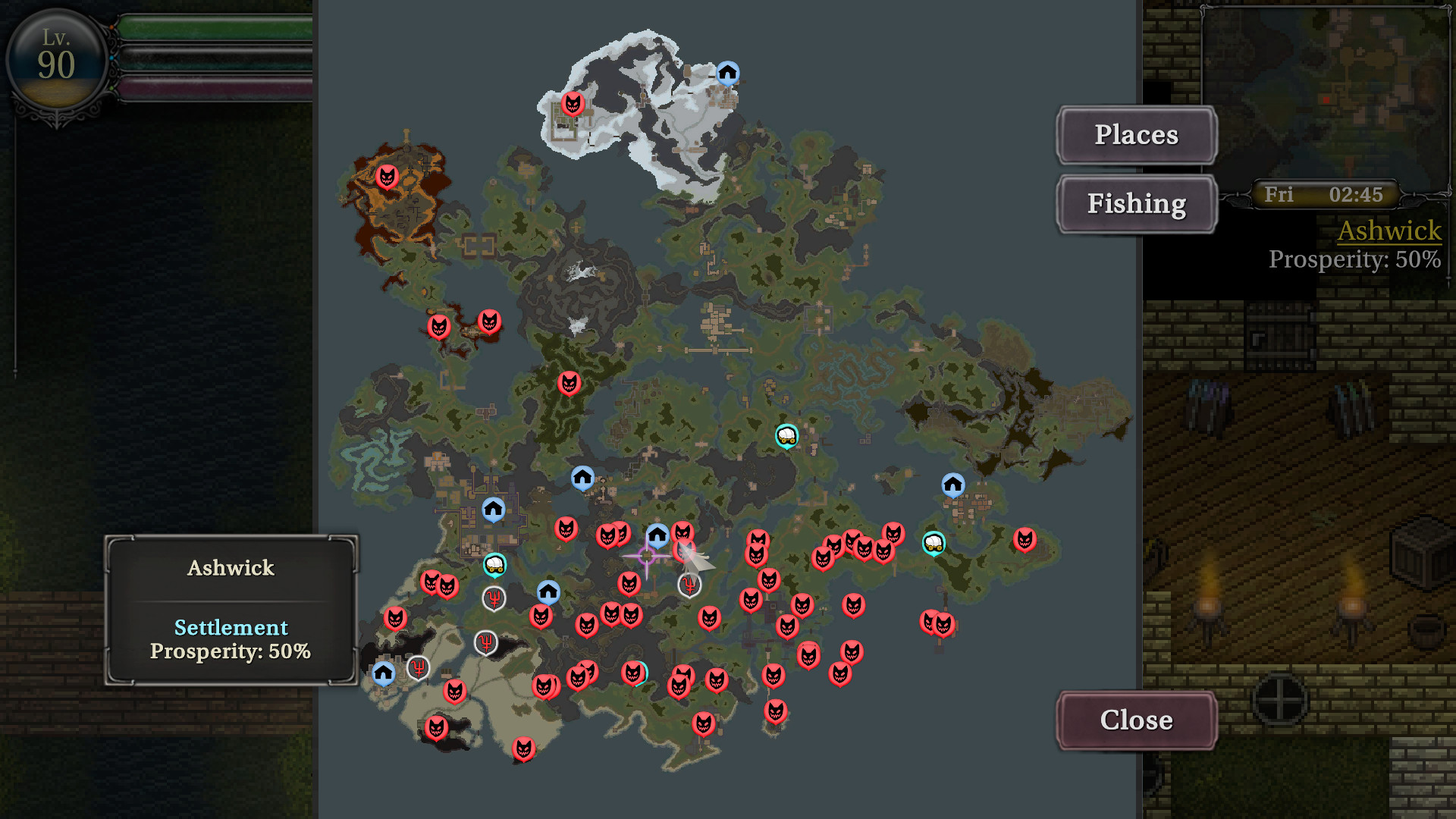
Despite Ruki’s own dissatisfaction with his past creations, the previous 9th Dawn games were well received by their players, with the first title from 2013 in particular frequently appearing on many “best RPGs on iOS and Android” lists. 9th Dawn II featured an attempt to incorporate online multiplayer, which had a somewhat mixed reception; consequently, 9th Dawn III was specifically designed to be single-player only, though it is possible to play local co-op if a friend picks up a second controller.
Much like its classic inspirations in the Ultima series, 9th Dawn III drops you into its world without much initial context, and you need to specifically go looking for the main questline. Otherwise, you are free from the outset (after a brief initial tutorial dungeon) to do pretty much what you want in the game world — be that pursuing sidequests, filling out your hunting log, building up your skills, levelling up your character, clearing out the game’s myriad dungeons, or simply exploring and seeing what you can find.
In many respects, as well as having a lot in common with the first few Ultima games, 9th Dawn III also feels quite a lot like Blizzard’s classic World of Warcraft, albeit without the multiplayer component.
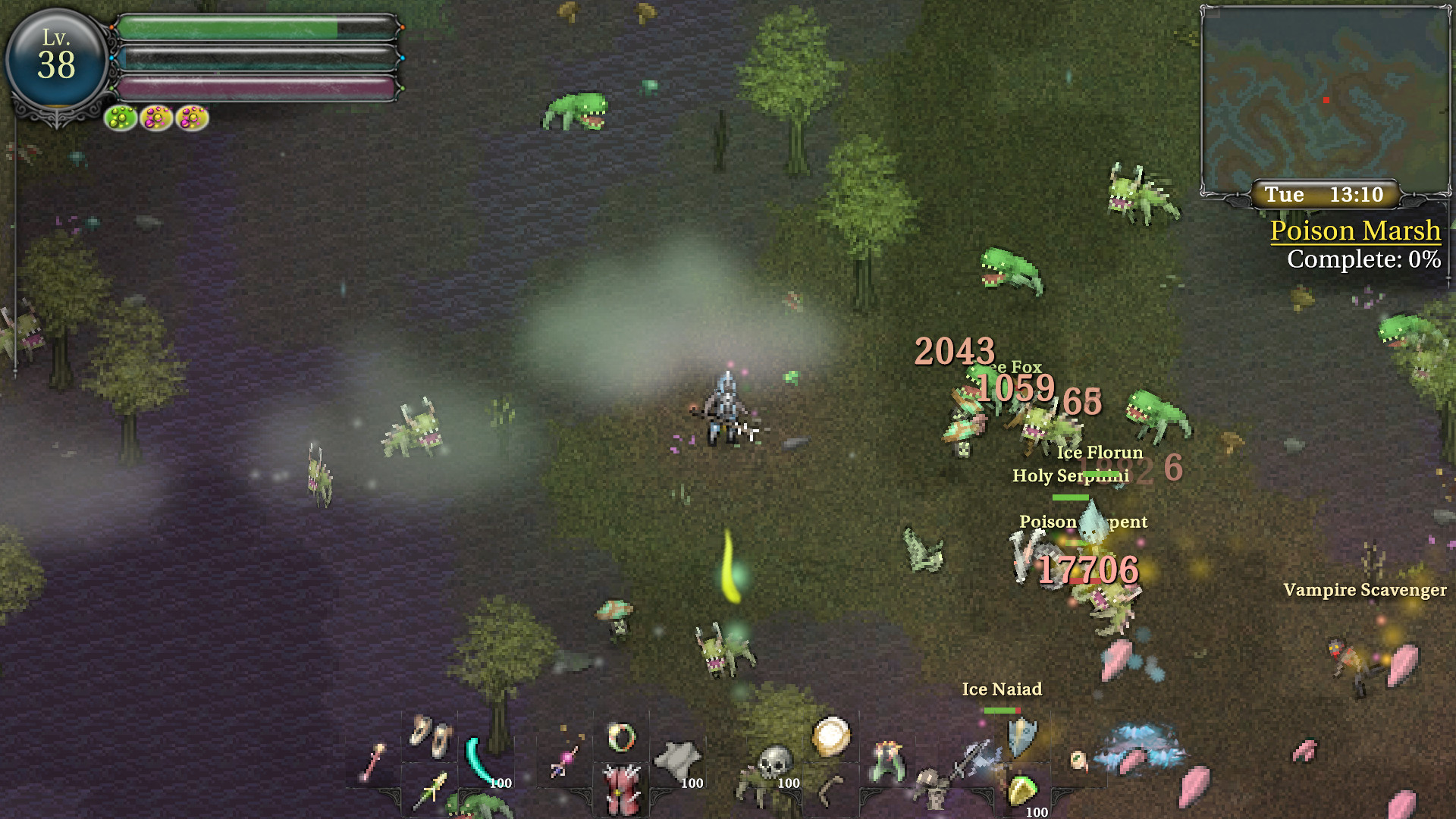
There’s a large open world to explore, with certain areas being clearly more dangerous than others, and discrete dungeons to delve into and complete. You have an extensive skill-based system that allows you to increase not only your combat capabilities but also learn how to craft things and become self-sufficient, and there’s a variety of quests that can be tackled in any order — with the supposedly “main” quest not necessarily being treated as any more “important” than other matters you might want to attend to, at least initially.
For those who enjoy minmaxing, there’s no need to railroad yourself into a particular build from the beginning of the game, as 9th Dawn III features no character classes.
Instead, your character starts out with a rating of zero in pretty much every skill, and from there you can build them however you like. The only area where you might eventually reach a cap is in your basic attributes, since you will only continue to gain attribute points as you continue to gain experience up to level 100, though you can respec them later in the game if so desired. You can, meanwhile, max out all of the skills with enough hard work, and it’s possible for one character to learn all the available abilities.
Interestingly, learning skills and abilities are handled completely separately from character level. Experience points for levelling — and, by extension, gaining attributes — are obtained through combat, but everything else is completely separate.
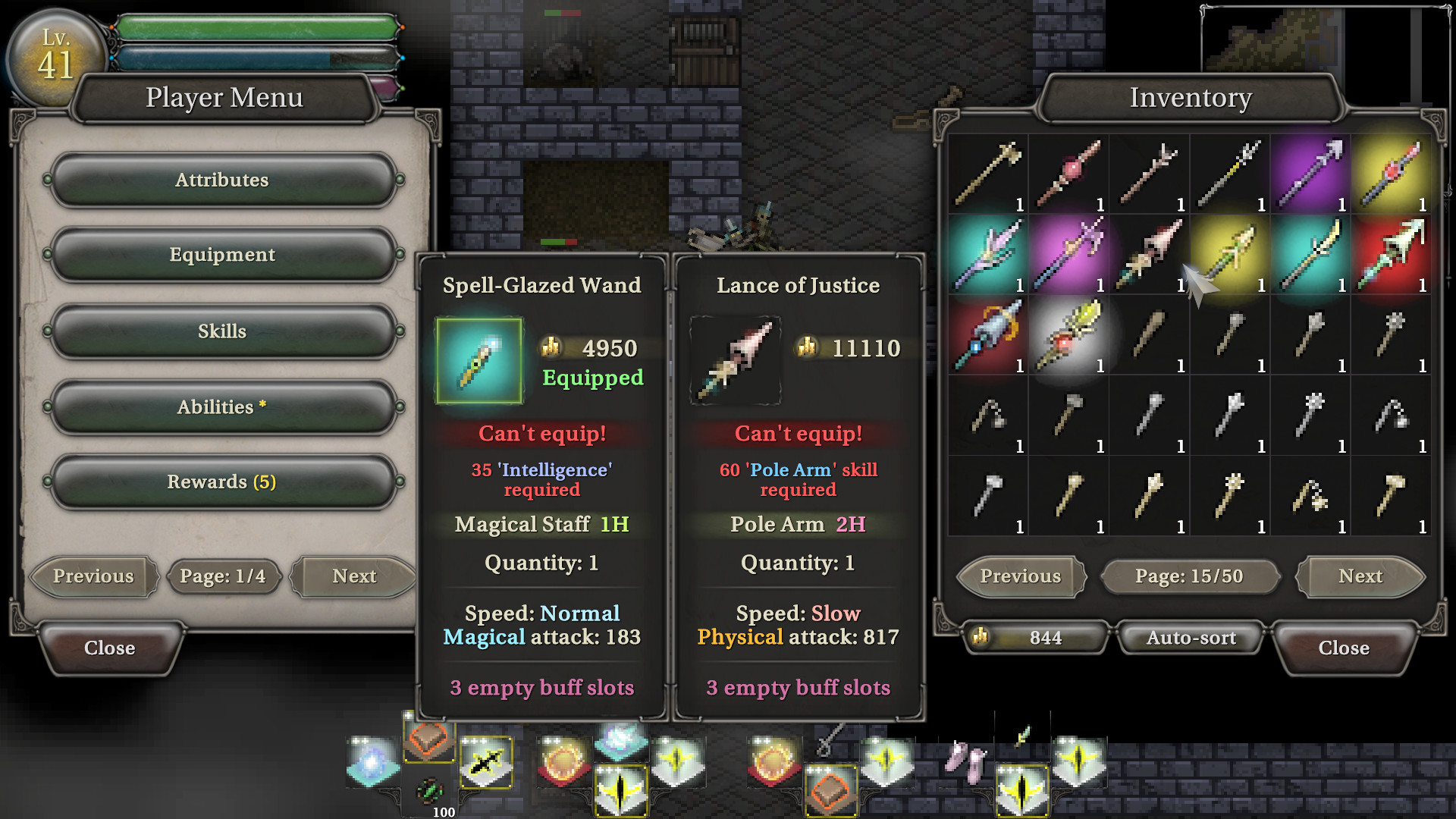
Skills are learned simply by using them. Use a particular weapon and you’ll get better at using it. Get hit while wearing a particular type of armour and you’ll become more proficient at defending yourself in it. Attempt to capture creatures and your creature capturing skill will increase. Cast spells and your spellcasting abilities will increase. You get the idea.
Some skills — particularly of the crafting variety — give you a bit of a head start with initial questlines that introduce you to some basic recipes, but for the most part you can just experiment with interactive elements in the game world and see what happens. There’s no “wrong” way to build your character, so you can just try out lots of different things and see what parts of the game you enjoy the most, which is a really nice, liberating sort of feeling.
Abilities, meanwhile, are once again handled completely separately from experience, attributes and skills. Instead, both passive and active abilities can be unlocked by locating Ability Coins, which are both scattered throughout the open world and hidden deep within dungeons. Acquiring these coins allows you to unlock abilities in a skill tree — though many abilities require more than one coin to unlock. In some cases the abilities provide you with something that you can immediately use, like a spell or special move; in others, they will complement your attributes and skills, such as an ability that immediately boosts all your crafting skills, or immediate buffs to health and attack power.
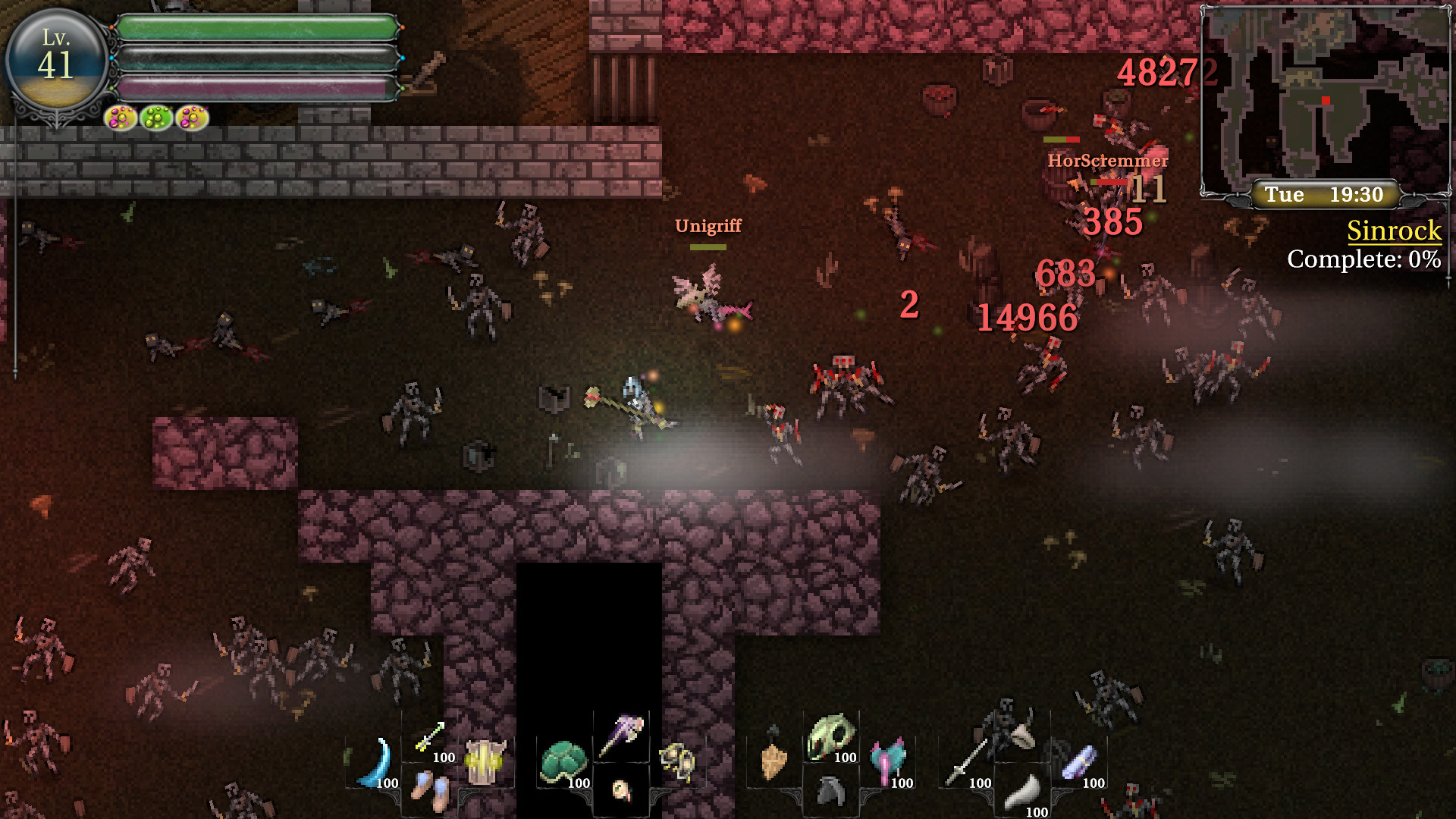
The moment-to-moment gameplay unfolds in real time. Basic attacks are performed in a “twin-stick” fashion on controller, with the left stick moving your character and the right stick causing you to attack with your equipped weapons in a particular direction, whether you’re using a melee or ranged weapon.
Spells and other active abilities make use of a hotbar system which, when playing with a controller, makes use of a similar system to Final Fantasy XIV: by holding down one trigger or the other, then pressing a face button or D-pad direction, you can use any of 16 different abilities or items immediately, though some have a short cooldown before they can be used again. The pace is much faster than Final Fantasy XIV, though; this is a true action RPG, so it’s possible to rattle off offensive spells in quick succession rather than having to wait a second or two between each cast.
Crafting is accomplished with a timing-based minigame, whereby you choose a recipe to attempt and how many products you wish to try and create. When crafting is underway, pressing a button with appropriate timing will keep your success rate as high as possible (which, it has to be said, is very low when you first start attempting craft skills!) for the duration of your crafting session, and when you have concluded your attempts, you will receive experience for the appropriate skill, plus any items that you successfully created. Expect to fail a lot when you first start out, but even failure rewards you with experience, so a bit of patience will reap great rewards in the long term.
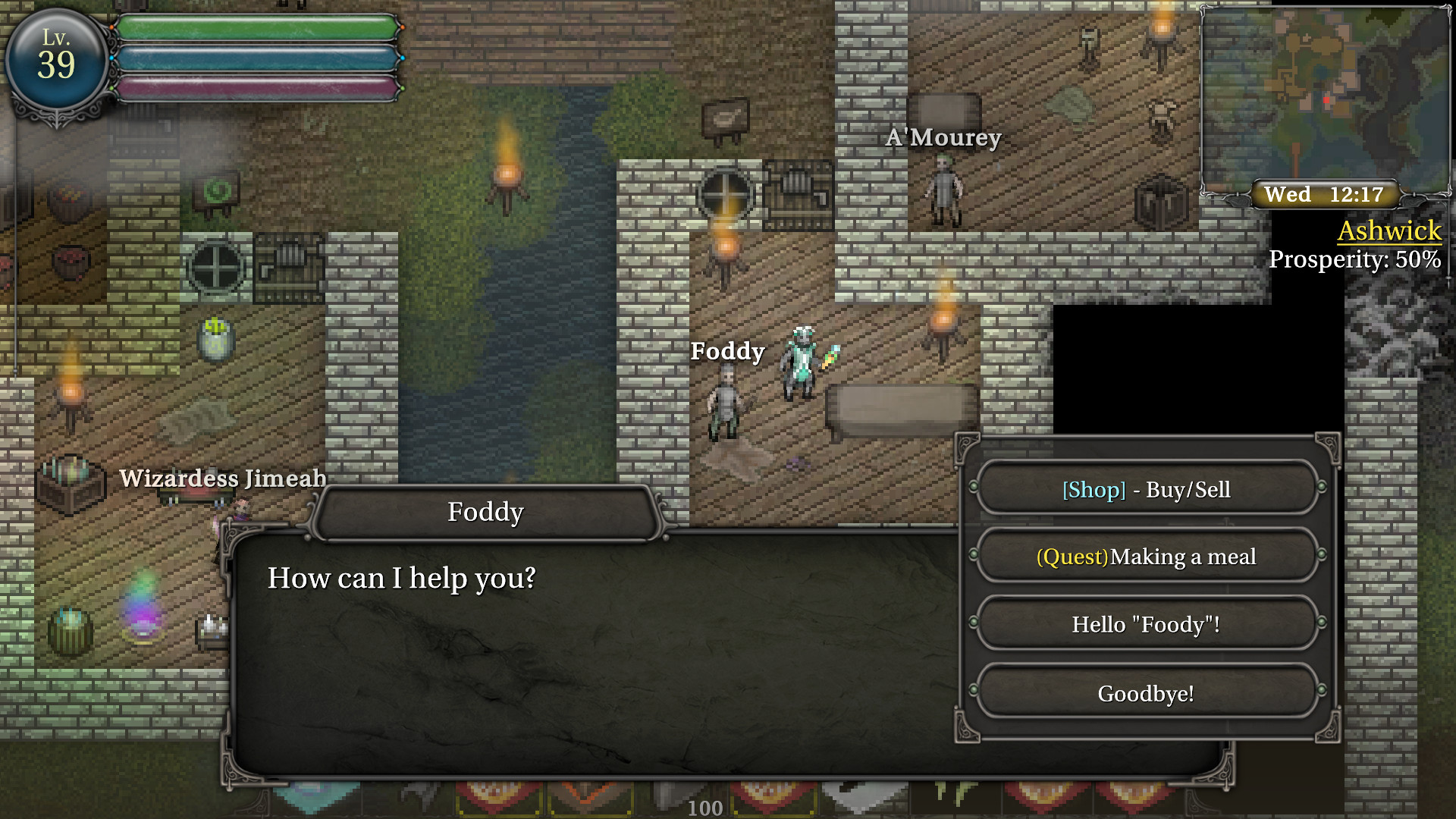
Dungeons are self-contained affairs that contain one or more level to explore. Each has a “progress” percentage, which is increased by finding the Ability Coins secreted in the dungeon, and defeating the dungeon’s boss. It’s only when you’ve found all the Coins and beaten the boss that the dungeon is regarded as “complete”, and marked as such on the overall world map — though you’re free to return to any previously cleared dungeon any time you wish, and all enemies except the boss will have respawned. This can be useful when seeking particular crafting items.
Structurally, 9th Dawn III can seem a little daunting when you first start out, as there are so many possibilities as to what you might want to do. The answer is to simply pick something and give it a go, then see where that naturally takes you from there. The game has a really nice sense of flow to it, where objectives naturally lead into one another, and you’ll quickly find yourself starting to set your own personal goals. Likewise, if there are aspects of the game that you don’t particularly enjoy, you can ignore them completely if you so desire.
Assuming you’re on board with the basic “explore and fight” gameplay, there’s no need to get involved with aspects such as creature catching or crafting if you don’t feel like doing so — though it should be noted that you’ll have a much richer, more satisfying experience if you do so. You’ll also find that your character can become a lot more self-sufficient if they can, say, make their own healing items or upgrade their armour and weapons with magical gems — and having a small army of up to 10 monsters fighting by your side (not to mention the fully customisable companion character) helps make dungeon-delving go a whole lot smoother!
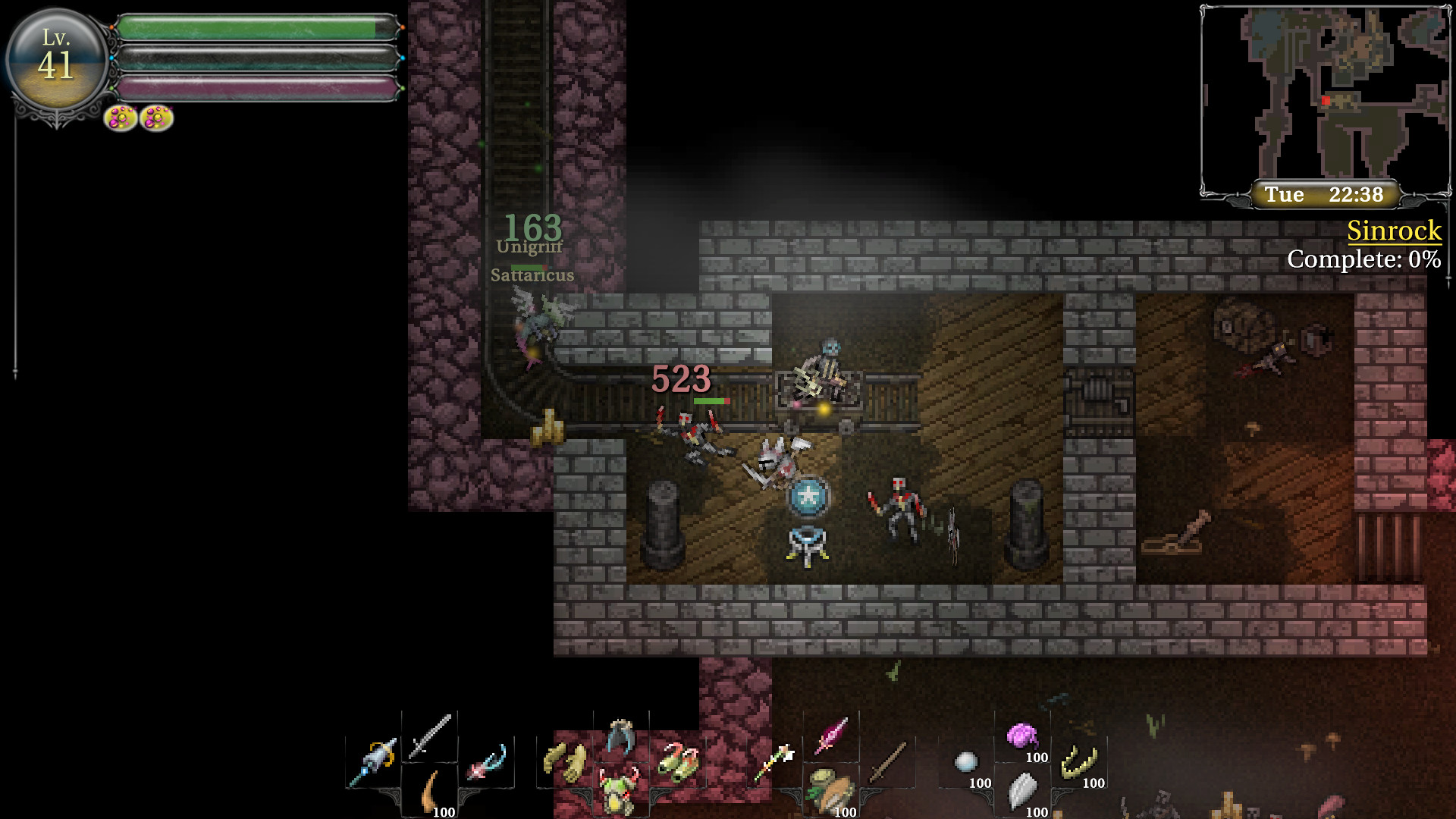
All in all, 9th Dawn III is a truly great game that is all the more remarkable an achievement for being mostly the work of a single developer. Well, I’ll add the caveat that these days it’s a remarkable achievement, anyway; back in the days of the original Ultima series — that which 9th Dawn III is heavily inspired by — games like this were made by teams of one or two all the time!
This isn’t to diminish Ruki’s work, by any means; rather, it’s nice to see a game developed very much in the “old school” — and to demonstrate that it is indeed possible to create a huge, sprawling, satisfying open world game without a team of hundreds of developers running themselves ragged. I know 9th Dawn III isn’t on a par technically speaking with something like Horizon or Forspoken — but I know which one I’d rather play.
9th Dawn III. It’s 9th Dawn III.
9th Dawn III is available now for PC via Steam, iOS, Android, Xbox, PlayStation platforms and Nintendo Switch.
Join The Discussion
Rice Digital Discord
Rice Digital Twitter
Rice Digital Facebook
Or write us a letter for the Rice Digital Friday Letters Page by clicking here!
Disclosure: Some links in this article may be affiliate links, which means we may earn a small commission if you make a purchase after clicking on them. This is at no additional cost to you and helps support Rice Digital!
- Letter from the Editor: passing the torch - June 30, 2023
- Super Woden GP 2 is looking promising - June 30, 2023
- Inti Creates is making a 32 bit-style Love Live action platformer - June 26, 2023






